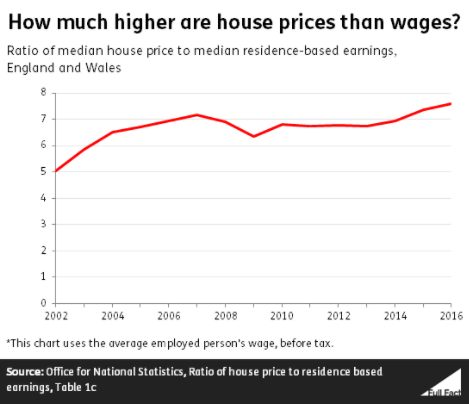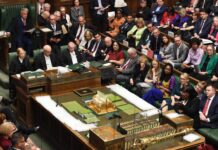We’ve factchecked five claims from the Liberal Democrat manifesto.
Liberal Democrat Manifesto: Grammar schools
“The Conservatives want to take us back 50 years, to an outdated system of grammar schools and secondary moderns, ignoring all the research and expert advice that show it will damage the life chances of so many children.”
- The number of grammar schools in England and Wales peaked in 1964, at almost 1,300. Today there are 163.
- The advantage for pupils who attend modern grammar schools is outweighedby the disadvantage for those who don’t, research shows.
- Experts such as Sir Michael Wilshaw, then Chief Inspector of schools have also weighed in. He said: “The notion that the poor stand to benefit from the return of grammar schools strikes me as quite palpable tosh and nonsense – and is very clearly refuted by the London experience.”
- The Conservatives argue that “people get lost in the argument about whether the grammar schools of the 1950s and 60s improved social mobility or not” (they didn’t) and promise that “there will be no return to secondary moderns”. Grammars would only be one type of school among many in a diverse system, with changes made to the system to ensure more disadvantaged children attend them.
Liberal Democrat Manifesto: NHS finances
“Nearly two-thirds of NHS trusts ended the last financial year in deficit”
- Nearly two-thirds (65%) of NHS trusts and foundation trusts ended the 2015/16 year in deficit.
- The year-end deficit was £2.45 billion, almost three times greater than the deficit reported in 2014/15.
- Figures for the 2016/17 financial year are not expected to be published until after the General Election. This is because of rules around what can and can’t be said by government organisations during the pre-election period (often referred to as ‘purdah’).
- At the end of December 2016 57% of providers were in deficit. At the time, NHS Improvement expected 51% of providers to be in deficit at the end of 2016/17.
Liberal Democrat Manifesto: Environment
“Air pollution in the UK is a killer. It contributes to 40,000 premature deaths a year and costs the NHS £15 billion.”
The number of premature deaths each year in which outdoor air pollution is a contributory factor is generally (although not universally) agreed to be around 40,000. As we’ve pointed out previously, that doesn’t mean that this number of people actually die prematurely every year because of air pollution, as it’s not the sole cause of deaths. Decreasing air pollution won’t prevent deaths, but it will increase longevity.
The cost to human health
- A much-quoted report from the Royal College of Physicians and Royal College of Paediatrics and Child Health in February 2016 put the number of premature deaths linked to air pollution at 40,000.
- The science behind the report is complex, and the findings have been challenged.
- Greenpeace quotes one expert as saying that the data going into the study has been “overinterpreted” and that “the basic data does not say that 40,000 people have died … There is loss of life from air pollution but the discussion of deaths isn’t helpful”.
- Another expert, Professor David Spiegelhalter, says that these figures are not “the ‘correct’ way of summarising the impact of a chronic hazard that tends to affect people who already have an illness. The main conclusion is that many more… individuals are affected”.
Costs to the NHS and the economy
- Identifying and putting a figure on the health costs of air pollution isn’t straightforward either and there are no official estimates for the cost to the NHS – yet.
- The estimates we do have (which may be calculated in different ways) generally take a broad view of the health and social costs of air pollution, going beyond the cost to the NHS. They vary quite widely.
- The Liberal Democrats took their figure from a 2010 Department for Environment, Food and Rural Affairs report, which said that “air pollution causes annual health costs of roughly £15 billion to UK citizens”. A more recent (September 2015) version of this estimate is over £16 billion.
- The report from the RCP and RCPCH estimated the social cost of air pollution from NO2 and particulates – the costs to health services and to business – at around £22.6 billion.
- The World Health Organisation estimated that indoor and outdoor air pollution cost the UK 3.7% of GDP in 2010, or US$ 83 billion (£54 billion at the time).
Liberal Democrat Manifesto: Housing
“House prices are high across the country – even where houses are available to buy, they are often unaffordable for first-time buyers. In many areas, the rental market has also become unaffordable.”
- The average house price in the UK was £216,000 in March 2017. The average varies across the country. The North East had the lowest average of the English regions (£122,000) and London had the highest (£472,000).
- There are different ways of measuring housing affordability. House prices have increased faster than earnings. In England and Wales, the median house price is now almost eight times higher than the median wage (the median is the point in the middle, where half are higher and half are lower).
- The Office for National Statistics has calculated that in the ‘least affordable’ council in England (Westminster), the median rent was 73% of the median wage in 2015. In Copeland, Cumbria, the figure was 19%.
- Comparing prices to wages means looking at the pay an average employee gets. It’s not a full reflection of how much money a household has to spend on housing because it doesn’t factor in things like taxes, benefits and pensions. Some households have more than one person contributing to their income, too.













